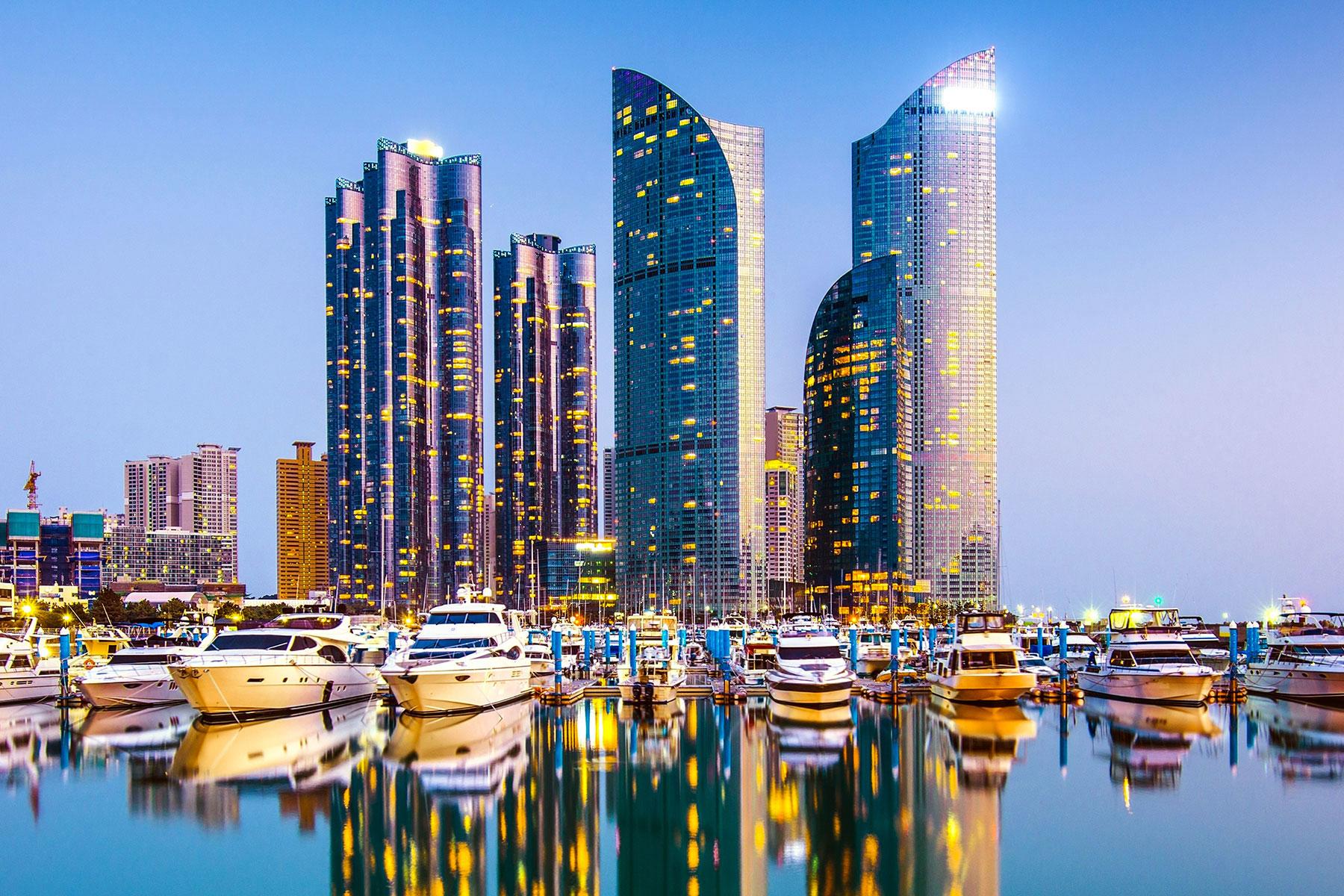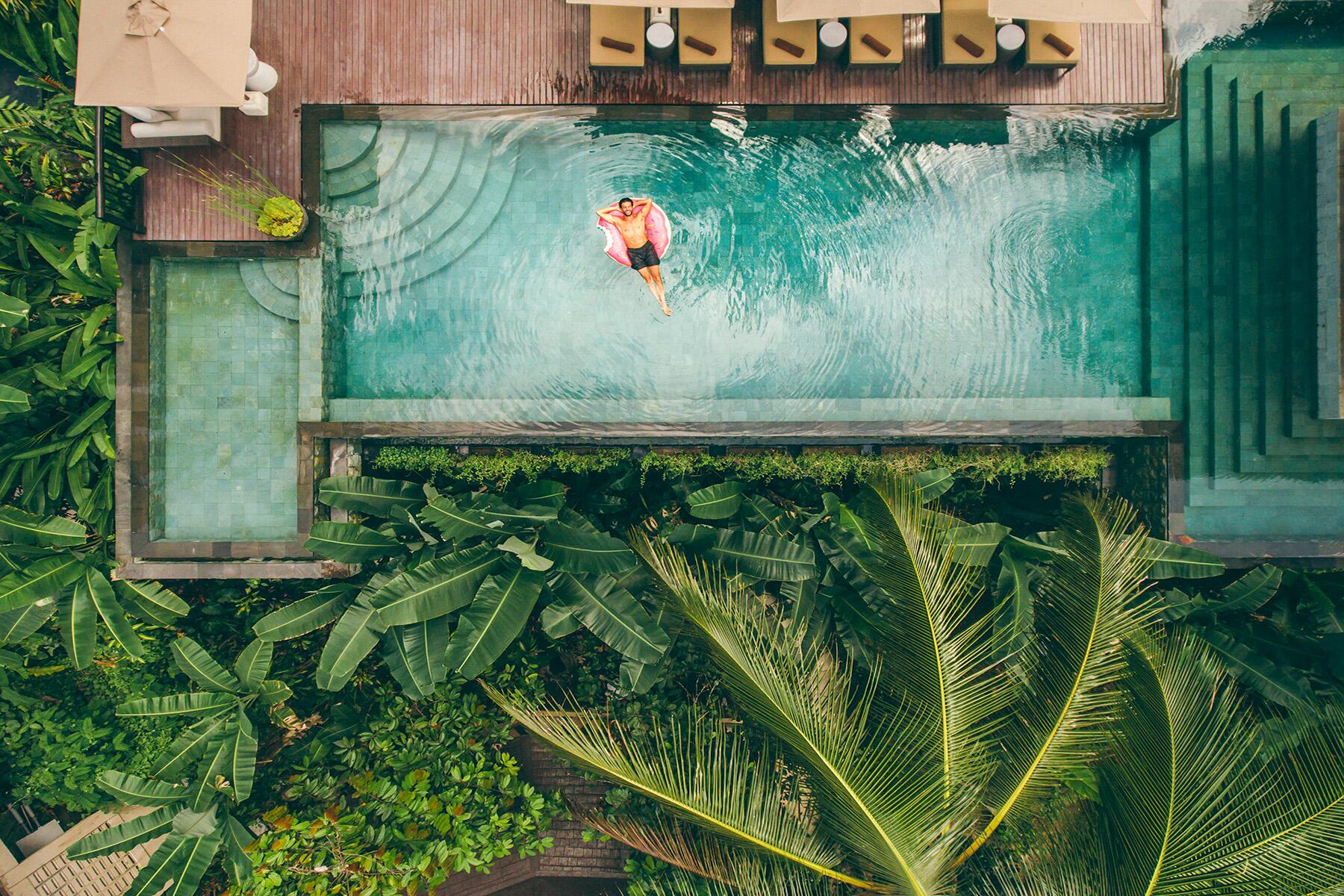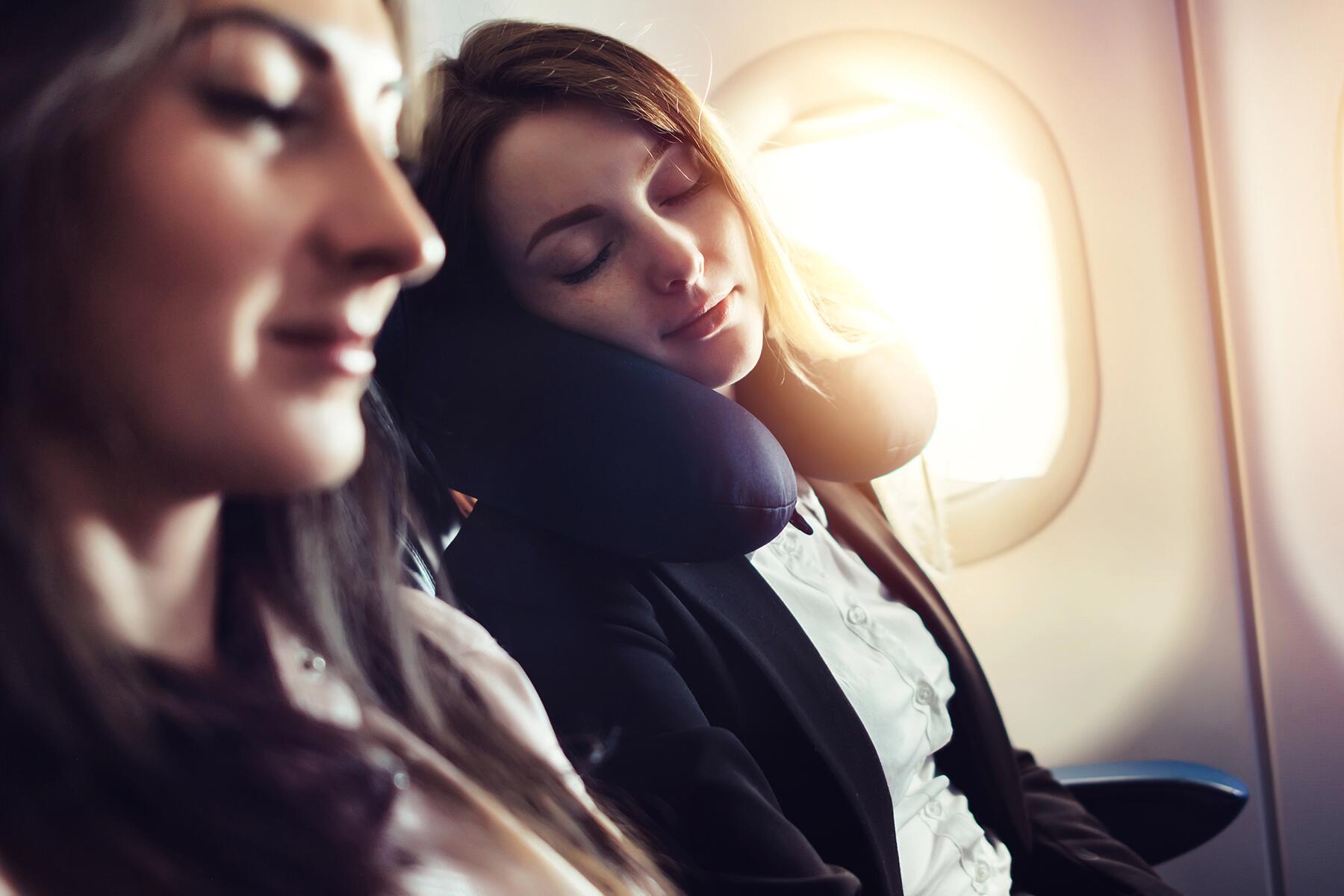How do you avoid snoring on a plane and waking up both yourself and your fellow passengers?
Picture a sailboat with a loose sail. It’s flopping around in the wind, making all sorts of noise because it can’t stay in its optimal position. Well, says Chester Griffiths, MD, the Chief of Endoscopic Sinonasal and Skullbase Surgery at the Pacific Neuroscience Institute in Santa Monica, California, that’s exactly what snoring is—just with your soft palate instead of a sail. It can be caused by allergies, a cold, nasal blockage, weight gain, dehydration, or mouth breathing.
When you’re on a plane, it’s the dehydration point that’s especially important. Planes are dehumidified to prevent corrosion of the fuselage. In turn, that dehumidifies the air you’re breathing and dries out your nasal passages, which leads to snoring. Plus, if you snore at home, you’re already going to snore on a plane, and probably a little bit worse.
So how do you avoid snoring on a plane and waking up both yourself and your fellow passengers? Griffiths shares his advice below.
Recommended Fodor’s Video
Book a Dreamliner
If you want to breathe better, sleep better, snore less, and have less jetlag, book your flight on a Dreamliner. According to Griffiths, these planes humidify the air enough that you won’t get so dehydrated. And that can stop snoring in its first initial huffs.
Use a Nasal Spray Before Your Flight
About a half hour before your flight, squirt two puffs of nasal spray into each nostril. It’ll keep your nasal passages moist, which will stop you from snoring. Griffiths suggests Afrin, which will last about 12 hours or a nasal gel like Ayr. These will also help if your snoring is caused by a cold or allergies because it relieves those symptoms as well. You could combine the spray with nasal strips as well to further open your airways.
Wash Your Nose With Saltwater
If you’ve ever considered bringing a Neti Pot on a plane, take this opportunity to do it. Griffiths says rinsing your nose with saltwater while on the plane can help stop snoring. It might be… messy… doing a saline rinse in those tiny airplane bathrooms, but it’ll help clear your nasal passages of things that might be obstructing them.
Don’t Recline Your Seat
People who snore generally sleep better sitting up, especially if they’re snoring because they’re overweight. Griffiths says this is because when you’re sitting up, gravity displaces the weight off the diaphragm, allowing you to breathe normally. It may be a little uncomfortable, but you’ll breathe much better (and quieter).
Stay Hydrated
Dehydration makes it harder to breathe without snoring, and planes are already dehumidified. So grab a water bottle before you get on the flight, and keep drinking water throughout your trip. Griffiths says it’ll keep the upper airway humid.
Avoid Sudafed and Sleeping Pills
Don’t use Sudafed or sleeping pills. With sleeping pills, it’ll sedate you to the point where your muscles can’t stop you from snoring. Sudafed, though, is another thing altogether. It dries you out, and it gives you a burst of energy. “So you’re dry, you’re hyped up, you’re in a sardine can and you’re bouncing off the walls,” Griffiths says. Sounds like a recipe for in-flight disaster.
Skip the Alcohol
You may not be a snorer, but it’s still best to skip the alcohol on a flight where you may fall asleep. “A glass of wine or a cocktail always causes people to snore even if they really don’t snore,” Griffiths says. “You become more flaccid. You have less structural support and your senses become a little bit depressed.” Think about people you know who snore after they drink. It’s the same thing, just up in the air.
Consider an IV Drip
Some international airport terminals offer IV drip shops, where you can get hooked up to an IV before or after your flight to bring your hydration back to the optimal level. While Griffiths says this might not help you stop snoring completely, it’ll at least hydrate you to the point where you’re more readily able to tackle the plane air. As a bonus, it’ll also help with your jetlag.



